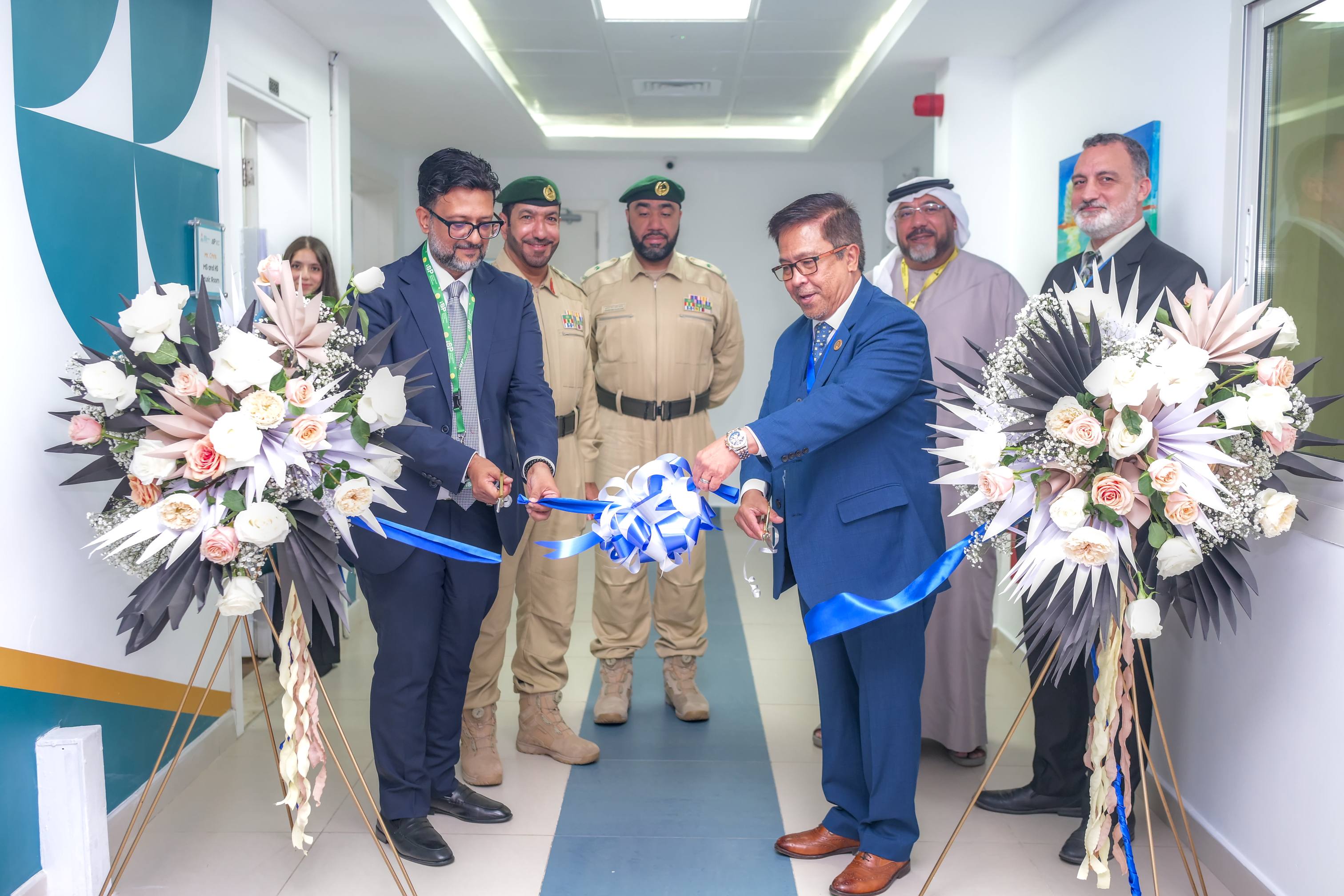
Leveraging the Metaverse to Enhance the Operational Capabilities of the HR Function
Technological advancement often beckons businesses with exciting prospects for excelling in operational capabilities of various organizational elements. The HR functions within a multitude of corporate entities have been steadily embracing the benefits of such ‘problem-solving’ solutions to streamline their transactional services. However, this has often presented its own challenges, especially, when inherent human ingenuity within the workforce is bypassed in favor of an ‘all-encompassing’ need to replace the existing talent with a promising technology to minimize the ‘complications’ related to maintaining a ‘human’ workforce. This often leads to passive resistance from the ‘embattled’ employees who feel ‘betrayed/belittled’ by the leadership due to the egregious violation of the psychological contracts. It can also be a leading cause of fomenting ‘Industrial Action’ within a unionized workforce. Consequently, it is imperative that prudent measures must be taken with respect to the acquisition of any ‘needed’ technology. The following simple equation can be used as an overarching principle for such an initiative:

The aforementioned equation can be facilitated by a comprehensive checklist that consists of probing questions (https://lnkd.in/fpWWMj9) to arrive at an astute assessment for procuring the ‘needed’ technology to fulfill relevant goals/objectives.
Metaverse is generally not considered a ‘needed’ technology within the corporate circles at the moment and there are legitimate questions being asked about the feasibility of such an investment (https://lnkd.in/e49r37_x) with the foremost proponent of engaging in the respective initiative, Meta (https://lnkd.in/esxVfviE), facing much more fundamental questions (https://lnkd.in/eBWY2WSQ) in terms of the ability to lead a galvanized workforce for its successful inculcation within the internet. However, the potential for utilizing such a platform as a tool (https://lnkd.in/eETTPjUE) for increasing functional effectiveness is quite strong due to multiple promising opportunities (https://lnkd.in/g-8Q9qQB). The following chart provides some examples in terms of the positive impact that the Metaverse can have on the HR function:

Let’s review and discuss the aforementioned examples, especially, in terms of the benefits gained from embracing the Metaverse.
Assessment Center
Hiring the ‘right’ talent is critically important for progressive organizations that are vying to stay relevant and competitive in the Digital Age. Metaverse can be invaluable in terms of developing autonomously-run online ‘assessment centers’ that are cost-effective, especially, in terms of reaching out to geographically distant candidates and can be programmed in multiple ways, including incorporating Diversity & Inclusion considerations, to gauge the skill set of the applicants in terms of their suitability for open positions. Such ‘assessment centers’ can operate 24/7 and provide insightful analytics for the recruiters to shortlist the most appropriate aspirants for further stages of the talent acquisition process.
Talent Onboarding
Welcoming new talent to the organization can be quite tricky if not managed properly. These recent inductees need to be ‘acclimatized’ in a ‘hospitable’ manner that can enable them to reach a reasonable ‘comfort’ level in the shortest possible time while gaining the necessary information, insights and introductions. Metaverse can facilitate in overcoming the ‘early jitters’ by providing a customized ‘soothing’, ‘learning’ and ‘interactive’ experience that can put the new team members at ease without being ‘overwhelmed’ with the deluge of knowledge. It can also help in minimizing/neutralizing the occurrence/recurrence of the 5 drivers of ‘orientation’ fatigue (Anxiousness, Anxiety, Apprehension, Apathy and Awkwardness) and provide an ‘early’ psychological profile of the new team members in terms of being the ‘right fit’ for the organization.
Employee Experiences
Digital Age has placed a premium on the provision of invigorating employee experiences (https://lnkd.in/evkNUirQ) that can also serve as ‘golden handcuffs’ for the desired talent to avoid being swayed by the ‘talent poachers’ within the corporate landscape. Metaverse can enhance the richness of such experiences throughout the Employee Lifecycle, e.g., creating a ‘safe’ and ‘secure’ place for team meetings/strategy sessions, sourcing the ‘knowledge bank’ for desired information in ‘real time’ among multiple team members, visualizing the innovativeness and beneficial impact of design thinking, integrating ‘Holographic Imaging’ with VR/AR to create a more enriching experience of connecting with distant stakeholders (supervisors, peers, subordinates, clients, vendors, shareholders, regulators, community leaders, etc.), connecting expats with their families back home in ‘homely’ settings, conducting performance reviews in a less intimidating environment by modifying the background settings in the form of an outdoor space and utilizing ‘friendly’ avatars, incorporating online training/learning/development with a virtual tutor/instructor/coach in a motivation-boosting setting, providing community leaders with virtual presentations of the planned/ongoing CSR initiatives, etc.
Shared Services
Employees feel ‘wanted’ when they have a ‘voice’ in the formulation and improvement of various services provided to them. Timely addressing of their concerns acts a catalyst in the respective context and incentivizes intrinsic motivation to enhance engagement during the performance of assigned responsibilities. Shared services have had mixed results within organizations as technological issues and suboptimal resourcing often plague their successful implementation. Metaverse can bridge such issues by providing a seamless experience while catering to the needs and expectations of the workforce in a customized fashion, e.g., providing desired solutions through an empathetic and knowledgeable avatar that is intimately aware of the employee’s professional background and ‘career history’ with the organization in addition to his/her psychological profile.
Workforce Wellbeing
The COVID-19 Pandemic has propelled the addressing of concerns related to the Wellbeing of the workforce at the forefront of organizational imperatives, especially, in terms of the Mental Health issues. Consequently, businesses are taking a deeper look at their prevalent workplace policies/procedures/practices to ‘weed out’ detrimental aspects for curbing ‘unwanted’ attrition of ‘desired’ talent. Meanwhile, employees are also taking the initiative to engage in self-reflection (https://lnkd.in/dkbjwn2) to regain their sense of purpose after learning lessons from the precariousness looming over their career prospects due to the ravages of the COVID-19 Pandemic. Metaverse can provide an appropriate private setting with an empathetic avatar facilitating the ‘recalibration’ and ‘rejuvenation’ of the ‘distressed’ professionals as recent studies have shown the efficacy of utilizing AI-driven entities as ‘trusted healers’ (https://lnkd.in/e_crNRWh).
Office Networking
One of the critical success factors in the longevity of a professional’s fruitful career with an employer is his/her ability to develop robust and influential networks within the organizational hierarchy. Such ‘bonds’ can benefit the employee in a multitude of ways, e.g., shortening the time of assimilating within the organization as a recent hire, getting collaborative assignments done in a seamless fashion, gaining preferential access to training and development opportunities, appearing on the ‘radar’ of the organizational leadership for advancement considerations, being the least likely to be retrenched/furloughed during tough economic situations, etc. Metaverse can open such channels of connectivity for sagacious professionals, especially, with influencers in distant locations, to have ‘favorable voices’, ‘trustworthy backers’, ‘tireless promoters’, and ‘dependable allies’ for minimizing/neutralizing any threat to their career ambitions.
Mentor Interaction
There are very few employers who invest in the growth and development of their employees by formally assigning capable mentors to them. Consequently, prudent professionals often seek ‘informal’ mentors to provide guidance and support in their career trajectories. The significance of such relationships cannot be overstated; however, care should be taken in terms of developing over-dependencies and/or seeking undue protectionism. This can lead to unnecessary organizational politics with ‘ambitious’ and ‘conniving’ mentors seeking to advance the ‘cause’ of their mentees at the expense of organizational harmony by engaging in ‘Machiavellian’ tussles with other mentors. Metaverse can be a catalyst for developing robust bonds between the Mentor and the Mentee in the form of a platform that cuts through ‘organizational noise’ to enable candid and constructive interactions in a ‘private’ setting.
Flexible Working
Flexible working (https://lnkd.in/guGi6AQx) has recently come to the forefront of corporate discussions in terms of optimizing talent management practices. Such a ‘shift’ in leadership thinking of not restricting talent resolutely within the confines of a ‘formal’ office space has been primarily driven by the lessons learnt from the restrictive conditions imposed during the COVID-19 Pandemic (https://lnkd.in/eS8ymtPD). Meanwhile, employees are also starting to ‘revolt’ against the will of their leadership to even accommodate the idea of coming back to the office on a minimal basis after having ‘discovered/rediscovered’ the ‘joys’ of ‘working from home (https://lnkd.in/e-UPBe7y). Metaverse can be utilized as a viable compromise between the extreme positions by alleviating the ‘crowdedness’ aspect of being ‘woefully trapped’ in a full-time office situation and the ‘isolationistic’ aspect of being ‘apathetically detached’ in a full-time remote situation.
Exit Interview
There is a significant level of discomfort and apprehensiveness about conducting exit interviews that seems to haunt even the most progressive organizations, especially, if the parting is not on amicable terms. This is despite the frequently touted corporate slogans of being a ‘great place to work’ and a ‘haven’ for talent. Such an exercise needs to be done with a healthy dose of humility and a genuine penchant for understanding gaps in existing practices while sourcing relevant improvement suggestions. This can be accomplished by a suitably-trained interviewer through asking the ‘right’ questions (https://lnkd.in/gK8r5_d8) and appropriating more time for ‘listening’, rather than, ‘talking’ to the interviewee. Metaverse can facilitate such an engagement in a comforting and calming environment, especially, for departing professionals in distant locations, by using friendly avatars, soothing background design, appropriate and accessible online knowledge bank for reference while maintaining a ‘respectable’ distance.
Alumni Outreach
Organizations often struggle to stay in touch with their former employees on a consistent basis. This robs them of a precious opportunity for utilizing such ‘Ambassadors’ of the ‘Employer Brand’ by leveraging their ‘goodwill’ in terms of attracting new talent. It also becomes a ‘blind spot’ in terms of realizing how well is the ‘word of mouth’ being perpetuated throughout the corporate landscape by those who ‘actually’ know the organization. The dire consequences of such a lapse become evident during challenging economic times, e.g., as a result of the COVID-19 Pandemic, with businesses struggling to ‘retain’ desired talent while frantically downsizing to stay solvent in ‘trying’ circumstances. Metaverse can go beyond the conventional communication channels, e.g., email, WhatsApp, online message boards, etc., and enable much more interactive opportunities through online ‘bonding’ activities, e.g., virtual gatherings, online speaking engagements/panel discussions, scheduling virtual tours of updated facilities, sharing of pictorial newsletters with VR/AR capabilities, etc.
Parting Thoughts
The aforementioned examples are just a sampling of the tremendous potential of the Metaverse in terms of enhancing the operational capabilities of the HR function. However, significant strides need to be made before it becomes feasible in terms of the quality/convenience/price of associated tools, e.g., VR/AR headsets, handheld controllers, mobile apps, etc., and the reliability of the relevant platform with customizable features for client organizations who can ‘institutionalize’ it as a ‘regular’ feature of a ‘modern’ office. This will require ‘bold’ initiatives from industry leaders who can act as trailblazers for others and demonstrate ‘economies of scale’ that can rationalize such a comprehensive investment.
The jury is still out on how quickly such a ‘profound breakthrough’ can be achieved with reliable/durable/economical/sustainable hardware components and trustworthy software service providers/sellers/resellers/subcontractors of such a technology (https://lnkd.in/eAgVX4sM) under a well-developed regulatory framework that is universally accepted and accredited for safeguarding the interests of relevant stakeholders (https://fb.watch/d1rLo3hlTy/). Will it require a whole new type of industry? Will it require a whole new type of skill set? Will it require a whole new type of vigilance? Will it require a whole new type of healthcare? Will it require a whole new type of ecosystem? Will it require a whole new type of societal shift? The questions are plenty and the answers are awaited…
Author: Murad S Mirza linkedin.com/in/muradsalmanmirza

 EN
EN AR
AR HI
HI ES
ES FR
FR DE
DE











